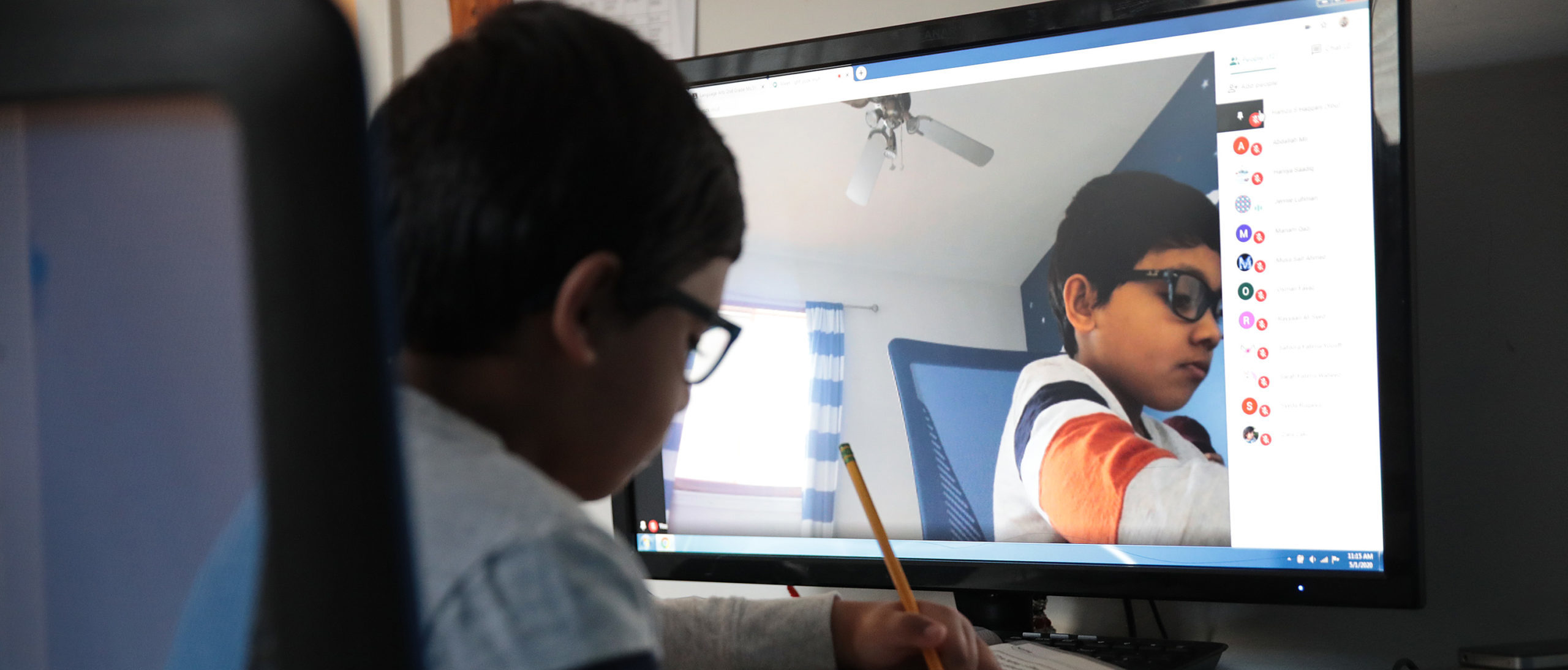Elementary students fell behind in math by over half a year while schools utilized virtual learning services during the COVID-19 pandemic, according to The New York Times.
Learning loss has been a significant hurdle for schools to overcome in the wake of the pandemic, with many students suffering in subjects such as math, reading and science, according to an analysis from the Times. One significant factor was online learning implemented by many districts in the United States, resulting in remote students from third to eighth grade falling behind in math by 0.57 years compared to 0.35 years with students who remained in person in the 2020-2021 school year, according to a May 2023 study from Harvard, Stanford and Johns Hopkins researchers. (RELATED: ‘They’re Distracting’: Schools Lock Up Phones As Kids Struggle To Pay Attention In Class)
“There’s fairly good consensus that, in general, as a society, we probably kept kids out of school longer than we should have,” Dr. Sean O’Leary, a pediatric infectious disease specialist who helped write school reopening guidance for the American Academy of Pediatrics, told the Times.

Al-Huda Academy, an Islam-based private school that teaches preschool through the 6th-grade students, has had to adopt an E-learning program to finish the school year after all schools in the state were forced to cancel classes in an attempt to curtail the spread of the COVID-19 pandemic. (Photo by Scott Olson/Getty Images)
School closure rates and results from the National Assessment of Educational Progress revealed that students in remote learning settings over a longer period of time were worse off in their test scores, according to the Times. In 2021, 50% of schools were still remote in January before dropping to less than 20% by May of that same year.
In 2022, American students fell 13 points on average in math compared to their Programme for International Student Assessment results in 2018. Poorer school districts suffered more heavily from remote learning loss at 0.64 years behind, likely due to the fact that more impoverished areas kept kids remote longer.
While schools closed for longer periods of time had a harsher impact on students, even short closures had significant effects on education as a whole, according to the Times.
“There was almost, in the Covid era, a sense of, ‘We give up, we’re just trying to keep body and soul together,’ and I think that was corrosive to the higher expectations of schools,” Margaret Spellings, chief executive of the Bipartisan Policy Center and formerly the education secretary under President George W. Bush, told the Times.
As of 2023, students have only gained back a third of the ground lost in math during the pandemic and only a quarter in reading, according to the Times. ACT scores for high school students have also taken a hit since the pandemic, with the average score dropping 1.1 points from 20.6 in 2020 to 19.5 in 2023 and nearly half of students, 43%, failed to meet college standards for any subject.
All content created by the Daily Caller News Foundation, an independent and nonpartisan newswire service, is available without charge to any legitimate news publisher that can provide a large audience. All republished articles must include our logo, our reporter’s byline and their DCNF affiliation. For any questions about our guidelines or partnering with us, please contact licensing@dailycallernewsfoundation.org.


